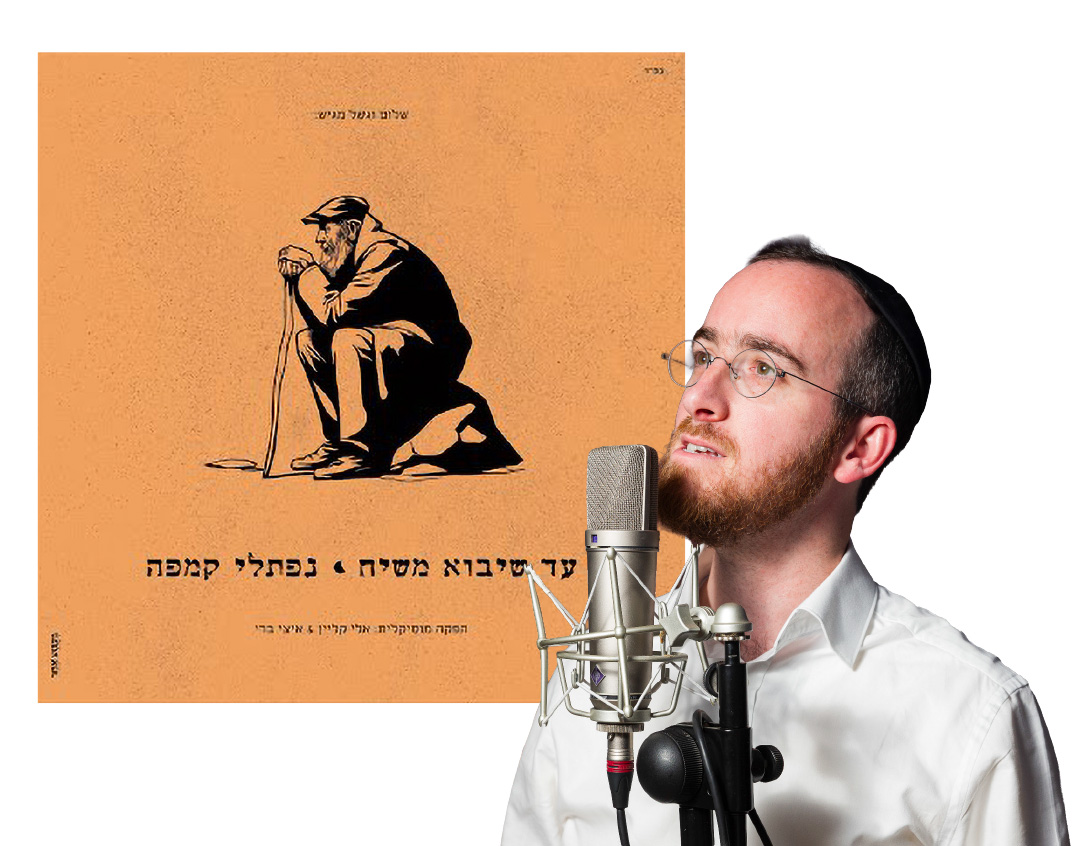To Sing a Song of Shabbos
| October 25, 2022Just Out: New Releases, Fresh Takes

Just in time to warm up over the long winter ahead, MICHOEL SCHNITZLER has just released SHABBUSON, his second Shabbos-themed album (the first was Birchas Habonim in 2005). “Although people are still singing those songs, I figured it was already time for a new album,” he says. The popular Yiddish vocalist says he has been working on the 15-track album for an entire year, since immediately after last Succos.
“Making an album takes much longer these days,” Schnitzler notes. “When I worked on my first album, Simcha Chassidis, back in 1992, you worked with one recording studio, a handful of musicians and technicians, and nothing came out of the studio until the mixing was finished. Today, over a hundred people are involved in producing an album, and I couldn’t have done it without my manager, Eli Weber.”
But even with an entire cast of composers, lyricists, arrangers, musicians, conductors, and technicians — from New York, Belgium, and Eretz Yisrael — Schnitzler insists his fingerprints are still on every syllable, every beat. “Yes, I have material from several writers, and I send the songs to different arrangers, but before I go to record, I have to be completely comfortable with everything I’ll be singing. The words and music have to be my style, and I sit and work through every drumbeat, every word to make sure it rings out in my own voice. The composers I’ve worked with for many years already know me well, but when it comes to a new writer, the first few times are hard, because everything has to be adjusted, and the writer isn’t used to that.”
Back in the 1990s, the song had to be re-sung in the studio until it came out perfect. Though he’s a veteran vocalist, Schnitzler owns that nowadays he still sings each song around 24 times, after which the vocals are expertly edited to bring out their full potency.
Pinky Weber, who often writes Holocaust-themed songs for Schnitzler’s albums, has this time written a poignant, contemporary song about a father waiting for his son to come home for Kiddush. “This true story came to me from Srulik Green, Lipa Schmeltzer’s nephew and a fellow musician,” says Weber. “He knew a father who, after his son had left home and gone off with wayward friends, would wait until chaztos every Friday night to make Kiddush, hoping against hope that his son would come back. It was on a Sunday, after several years’ absence, that his son called to say he was battling a terminal illness. He apologized to his parents, but by the next Shabbos he was no longer in This World. The father called together his son’s friends and made Kiddush with them, finally feeling the presence of his son’s neshamah joining them.”
Alongside Reb Pinky and the other great composers of the Yiddish-speaking world, such as Motty Ilowitz, Lipa, Hershy Weinberger, Hershy Rotenberg, and Reb Chesky Weiss, and veteran composer Yossi Green, there are new faces too, including a 13-year-old named Chesky Laks, who contributed “Faigele,” a lively swing-style composition comparing the zemiros sung by Klal Yisrael to a bird singing sweetly before a king.
Of course, no Shabbos album would be complete without a hartzige ballad about a mother’s whispered prayer over her Shabbos candles, and Motty Ilowitz doesn’t disappoint. In his “Licht Shmiesen,” the holy candles absorb her secrets, angst, and tears, and reply with a promise to convey her heartfelt wishes to the weekly visiting angels to take back up with them.
(Originally featured in Mishpacha, Issue 933)
Oops! We could not locate your form.






